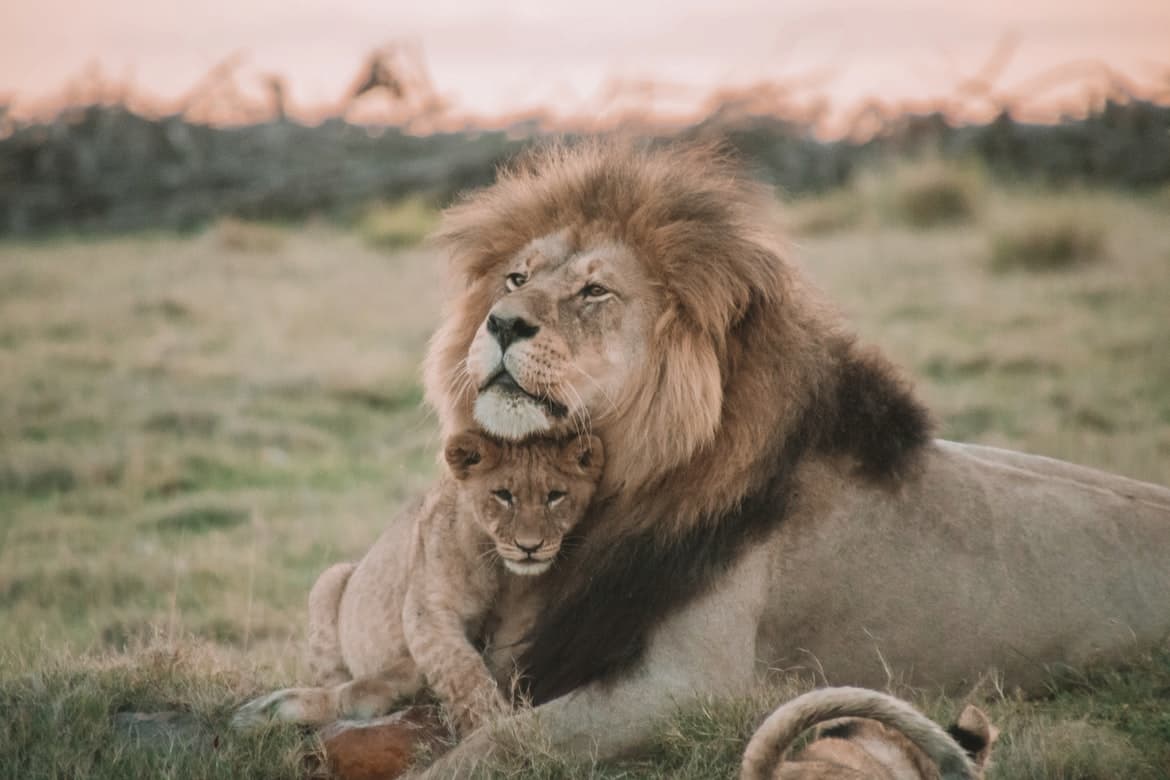Lions are one of the most recognizable and popular animals on the planet, and for a good reason. Lions symbolize courage, strength, and power more than any other animal in the wilderness. Lions are the most sedentary of the big cats, sleeping or resting for up to 20 hours every day. They can be spotted napping in the shade or reclining on their backs with their feet up. They are incredibly affectionate towards one another while lounging around, rubbing heads, grooming, and purring.
Here are some amazing lion facts:
Lions don’t need To drink every day
Lions may endure up to four days without drinking water, although they will drink water every day if it is provided. Lions must eat daily. Adult female lions require approximately 11 pounds of meat per day, whereas male lions require 16 pounds or more per day.
While lions are known to hunt on huge herbivores like wildebeest, zebra, and buffalo, they have also been found to prey on birds, mice, hares, lizards, and tortoises.

Lions communicate in many ways
Lions use a variety of sounds to communicate, including roars, growls, moans, and grunts. They also rub their heads against one another to unite and distribute the “family scent.” The roar of a lion can be heard for up to 5 kilometres. This is a warning to other predators and a way to attract mating partners and guard their area against competing males.
Second largest cat on Earth
The lion is the second largest big cat, only slightly smaller than the Siberian tiger. Lions have a short rounded head, round ears, powerful deep-chested physique, and a hairy tuft at the end of their tail. Unlike all other large cats, which hunt alone, lions are social animals, and they live in pride. Male lions can reach a length of 10 feet and a weight of 550 pounds, while female lions reach a length of 9 feet and 390 pounds.
Lions can climb trees
Most lions spend their time on the ground. Because they are not adapted for climbing, they are not as graceful as leopards when climbing trees. Most lion pride do not climb trees, and because huge males are so heavy, they are less likely to do so.
The reason lions climb or sleep in trees is to avoid being bitten by annoying biting flies and insects on the ground. It’s cooler up in the tree, and they have a better vantage point to observe whether there are any other creatures nearby. Lions may also be forced to briefly climb a tree to escape an enraged herd of buffaloes.
Lions are under threat
The population of lions is declining across three-quarters of the world. They are officially listed as vulnerable to extinction since there are just about 20,000 left in the wild. They are majestic and powerful and have no natural predators.
African lion populations have fallen by more than 40% in the last 30 years. Loss of territory, lion/human conflict, and trophy hunting are the greatest risks to lions. As a traveller, you can help by visiting national parks and game reserves that dedicate resources to lion conservation.